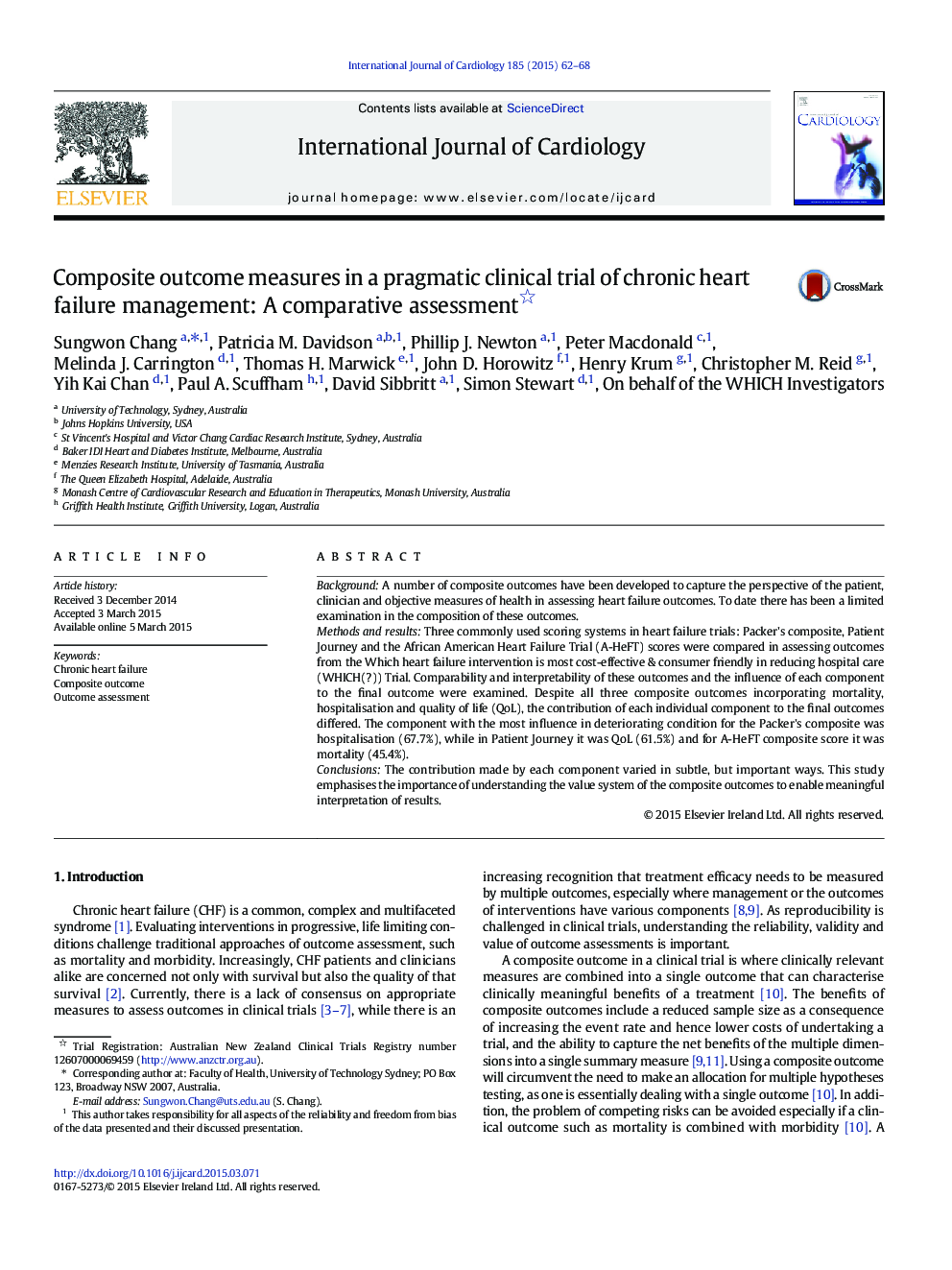| Article ID | Journal | Published Year | Pages | File Type |
|---|---|---|---|---|
| 2929082 | International Journal of Cardiology | 2015 | 7 Pages |
BackgroundA number of composite outcomes have been developed to capture the perspective of the patient, clinician and objective measures of health in assessing heart failure outcomes. To date there has been a limited examination in the composition of these outcomes.Methods and resultsThree commonly used scoring systems in heart failure trials: Packer's composite, Patient Journey and the African American Heart Failure Trial (A-HeFT) scores were compared in assessing outcomes from the Which heart failure intervention is most cost-effective & consumer friendly in reducing hospital care (WHICH(?)) Trial. Comparability and interpretability of these outcomes and the influence of each component to the final outcome were examined. Despite all three composite outcomes incorporating mortality, hospitalisation and quality of life (QoL), the contribution of each individual component to the final outcomes differed. The component with the most influence in deteriorating condition for the Packer's composite was hospitalisation (67.7%), while in Patient Journey it was QoL (61.5%) and for A-HeFT composite score it was mortality (45.4%).ConclusionsThe contribution made by each component varied in subtle, but important ways. This study emphasises the importance of understanding the value system of the composite outcomes to enable meaningful interpretation of results.
